(edited October 2023 for typos, oops!)

Last week, I had the privilege of attending “Blood & Thunder,” author and scholar Mark Finn’s presentation on Robert E. Howard for the Dallas Historical Society, an in-person treatment of Finn’s identically-titled seminal biography of Howard. Finn makes a compelling case not only for Howard’s inclusion in the top tier of Texas authors but also the essential Texan-ness of much of Howard’s work, including Conan.
A little bit of background, if you are unfamiliar with Howard (though, if you are unfamiliar with Howard, I’m also curious as to how you found my website):
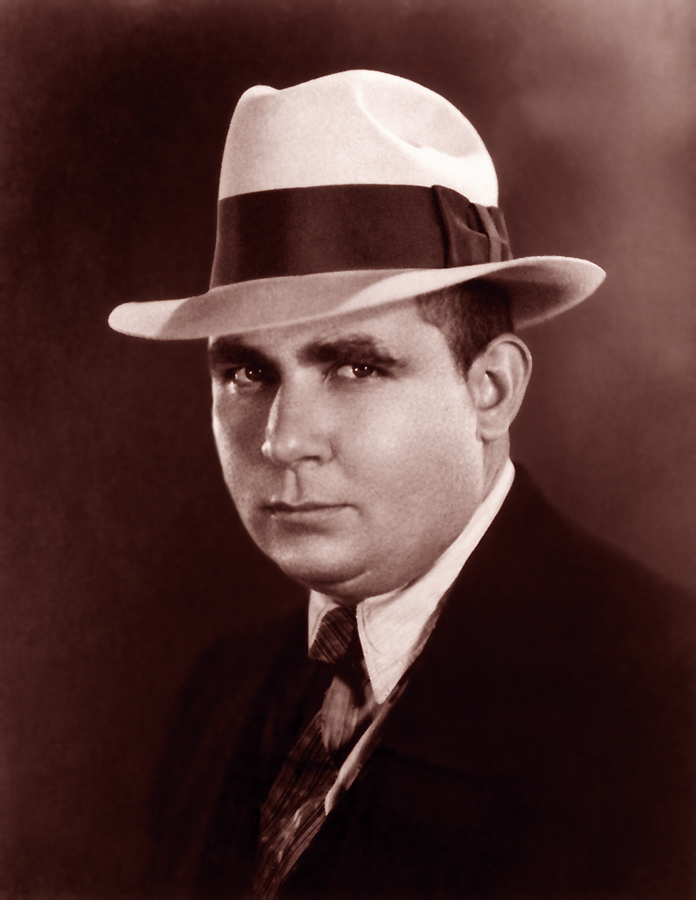
Robert Ervin Howard was born in 1906 in the tiny north Texas town of Peaster but was raised and spent the majority of his life in Cross Plains, a place where central, north, and west Texas come together not just geographically but culturally and historically. By Howard’s late teens, the West Texas oil boom had rolled over Cross Plains like a black wave, significantly impacting not only Howard’s life but also his work.
While best known for Conan and a certain style of action-heavy, hyperbolic tale, Howard’s literary scope was vast including poetry, drama, and many forms of fiction. While Howard himself traveled relatively little in his brief life, he had far-reaching intellectual horizons and maintained correspondence with many authors of his day including H.P. Lovecraft and his associates, eventually becoming a member of that circle.
Howard’s life was seldom an easy one and he died by suicide at the age of thirty.
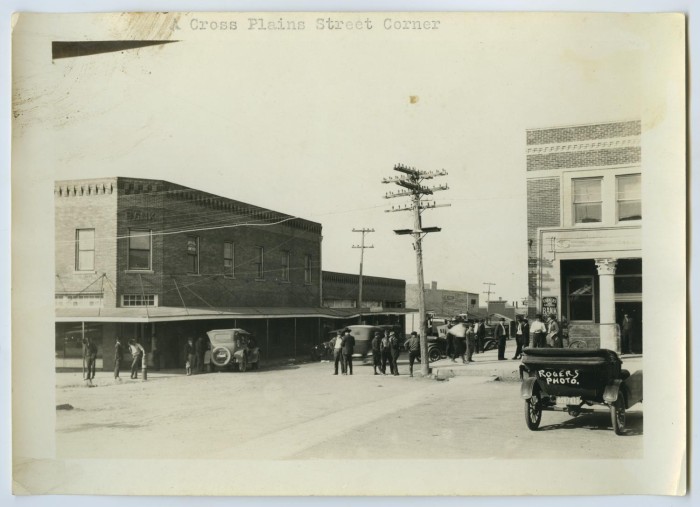
Finn sets the scene for the Blood and Thunder lecture by narrating a hypothetical, or rather composite, moment in Howard’s youth, surrounded by Cross Plains’ oilfield roughnecks and reverends, housewives and boxers.
Initially, Finn focuses on Conan’s evolution from a creature of pulp magazines to a cultural icon so ubiquitous that “Conan” has become conversational shorthand for a particular personality type and specific kind of tale.
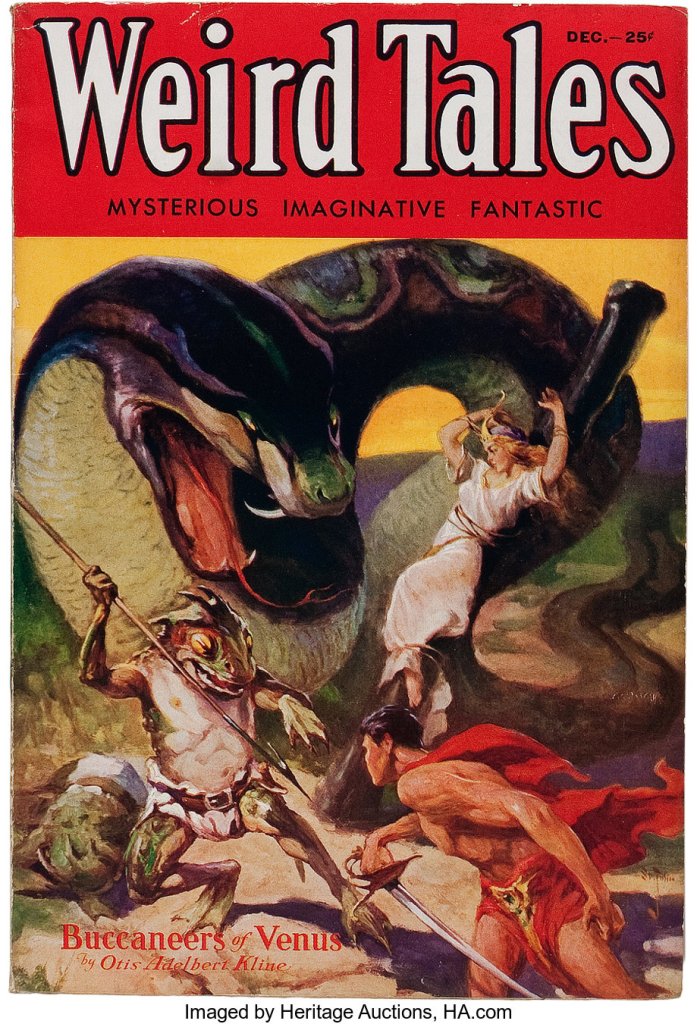
Finn’s ultimate point to this chronology of Conan is that the barbarian’s success has generally come at the expense of Howard’s. Both because of Conan has sucked the air out of Howard’s many other creations and because of the stigma attached to genre fiction until relatively recently, Conan has played a large part in keeping Howard from a status that Finn believes should place him in same ranks as Texas authors like such as Larry McMurtry, Cormac McCarthy, and J. Frank Dobie.
That is a Texas-sized assertion, but Finn proceeds to deliver the receipts. These include Howard’s many creations beyond Conan: his Steve Costigan stories, his boxing fiction, his prodigious correspondence with other authors, even an expansive collection of poetry. The cornerstone of Finn’s argument, however, is the framing of Howard as perhaps the ultimate practitioner of the art of the tall tale. A distinctive narrative form with its own hallmarks and conventions, the tall tale holds a special place in the broader context of Western (in the sense of the American West) literature. These conventions: humor, hyperbole, unreliable narrators, and physical comedy, flow so naturally from Howard that a reader is often not conscious of their use. Finn points to Breckinridge Elkins, an absurdist exaggeration and caricature of the rustic mountain man archetype, as the pinnacle of Howard’s creations in this regard.
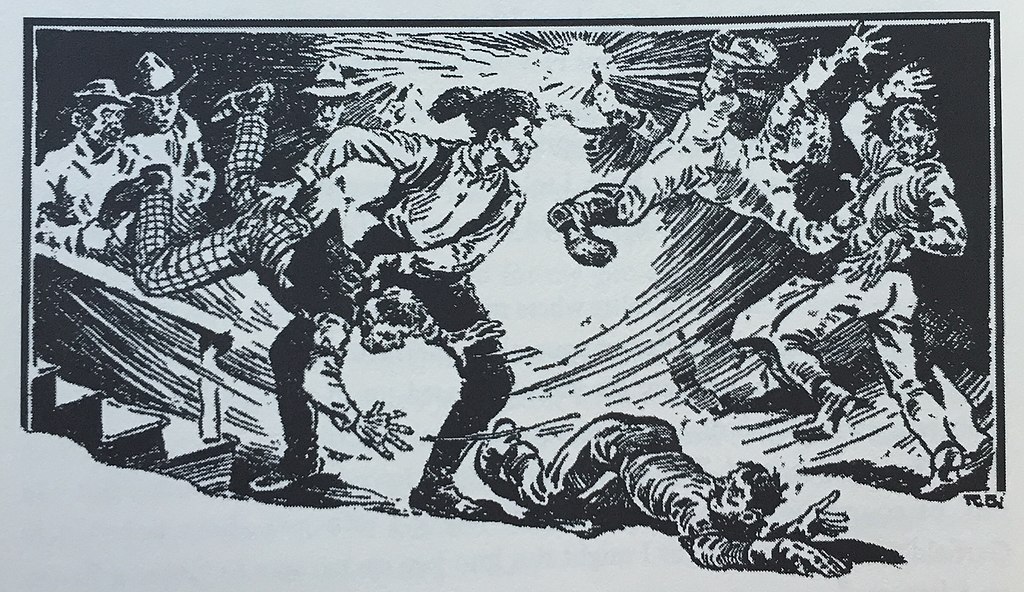
I’ve always had a soft spot for Howard. In fact, a throwaway line in my Bel Nemeton series may imply that Howard is co-protagonist’s Jake Booker’s grandfather (Howard had no children that we know of but that’s okay, Bel Nemeton was already something of an alt-history after I apparently decided the druids of Anglesey should hang on a few centuries longer than they did our world).
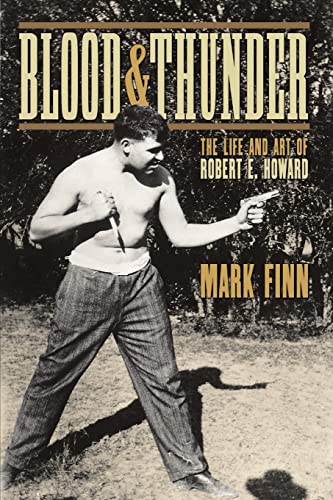
Howard was obsessed with Texas, its history, its landscape, and its rough-and-tumble oil patch society in which he lived. The final part of Finn’s presentation is devoted to showing the linkages between that love and the essential Texan-ness of so much of Howard’s work. Yes, even Conan.
I love an underdog and, with popular memory leaving him playing second fiddle to Lovecraft in weird tales and to Tolkien in fantasy, Howard is definitely an underdog. Finn helps make the case that this relegation is unfair. His soft spot for Howard runs even deeper than mine does. So, if you want to know more, pick up Blood & Thunder.
Pingback: Robert E. Howard: The Sword & Sorcery Man from Texas – Bloodlines Reforged – Tales of Epic Fantasy